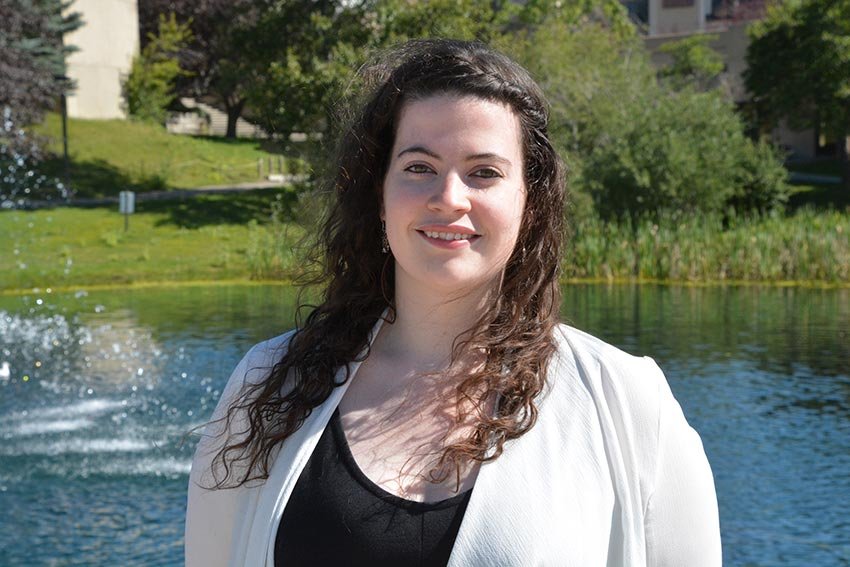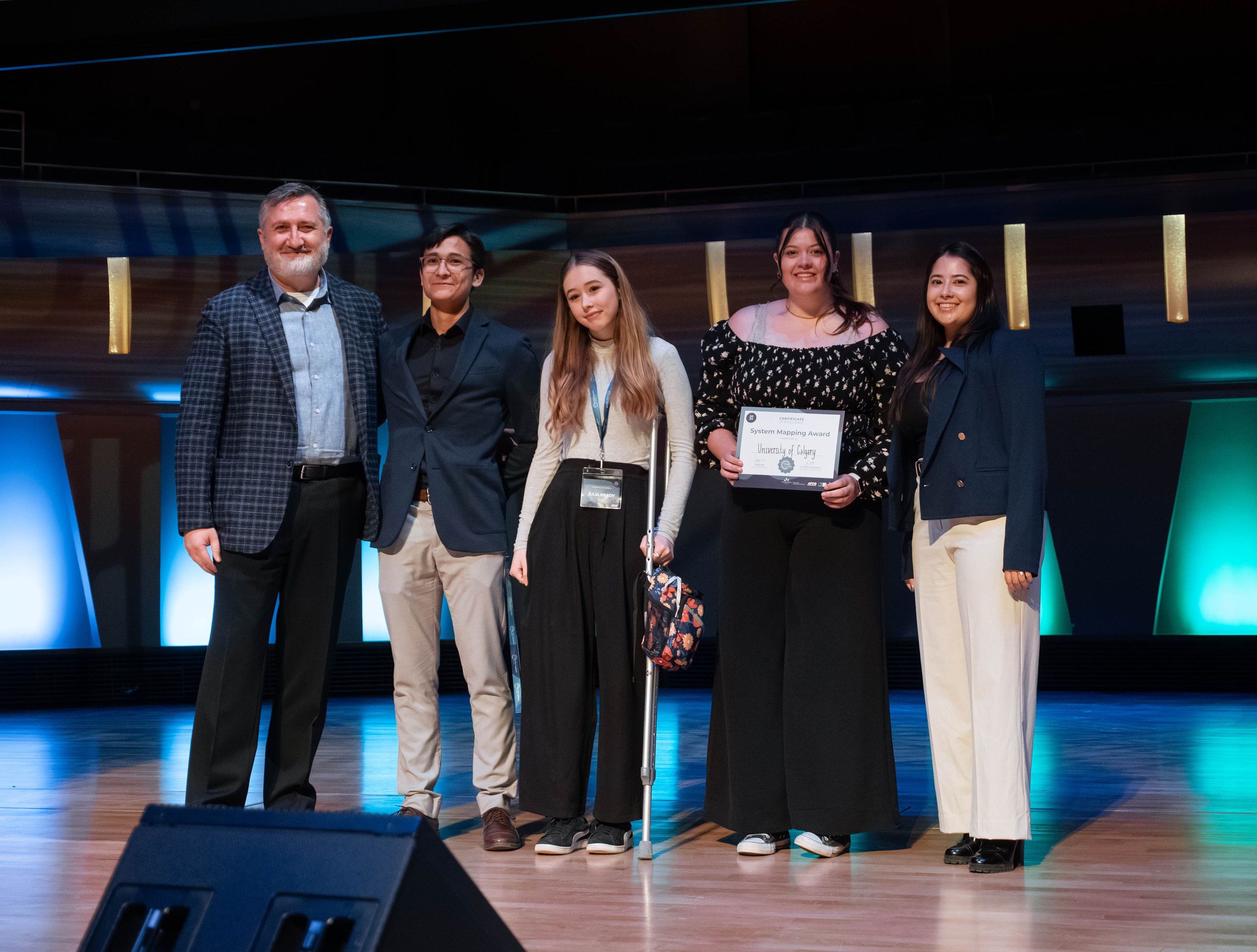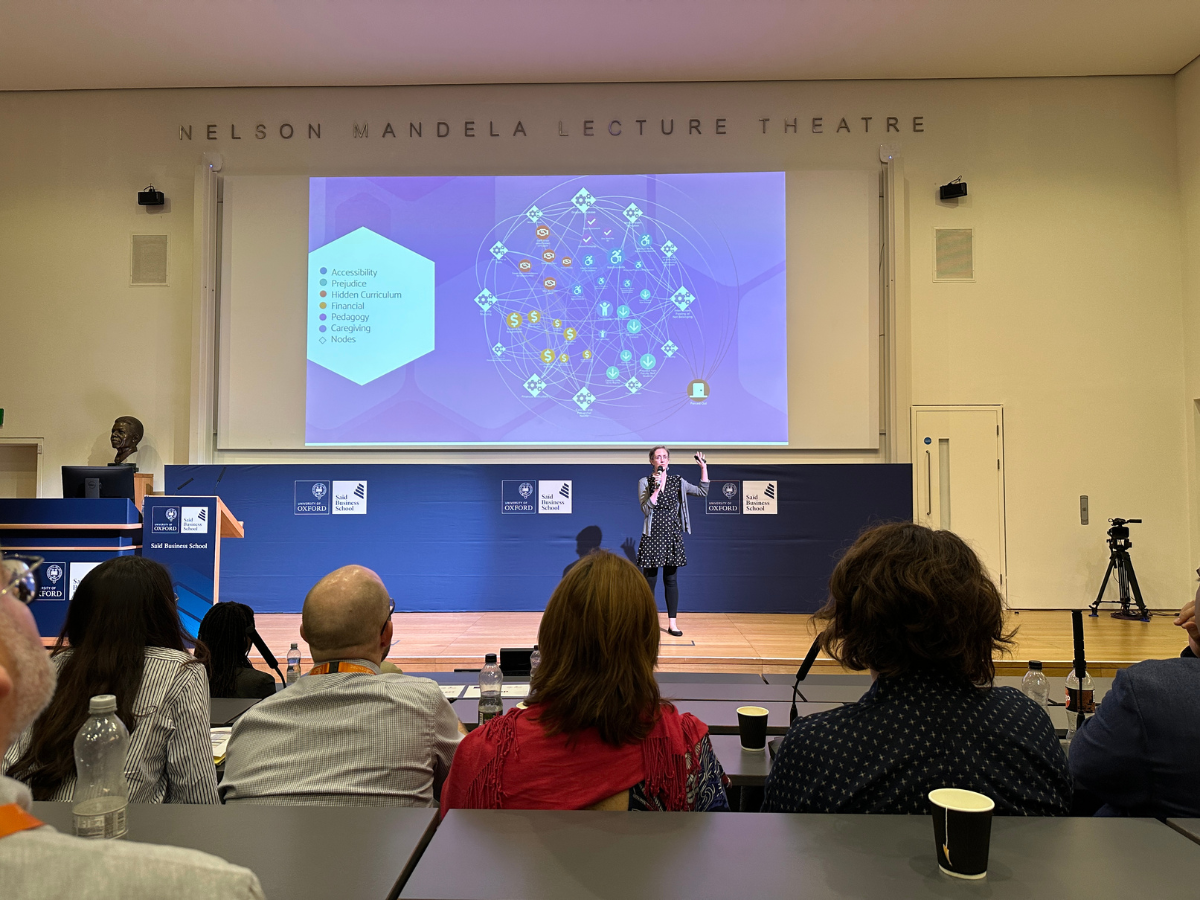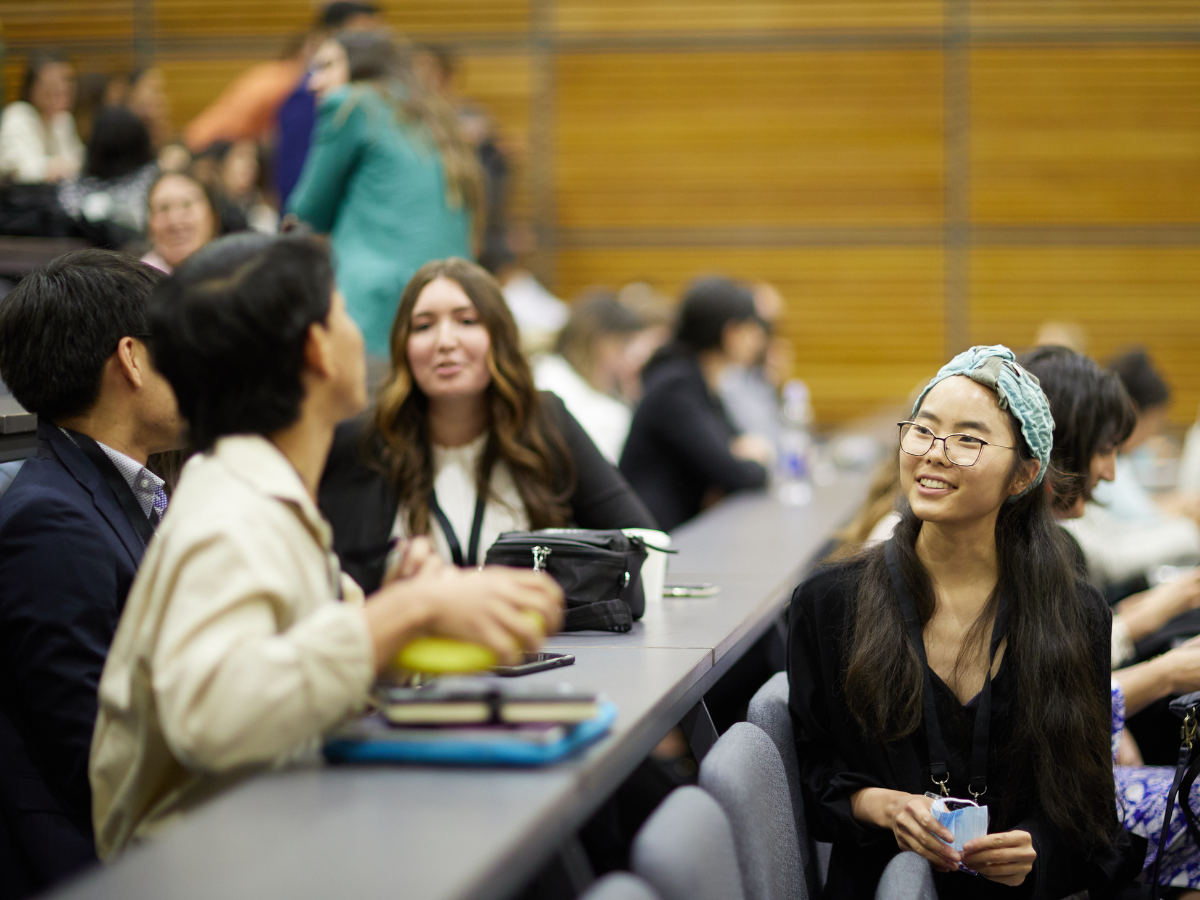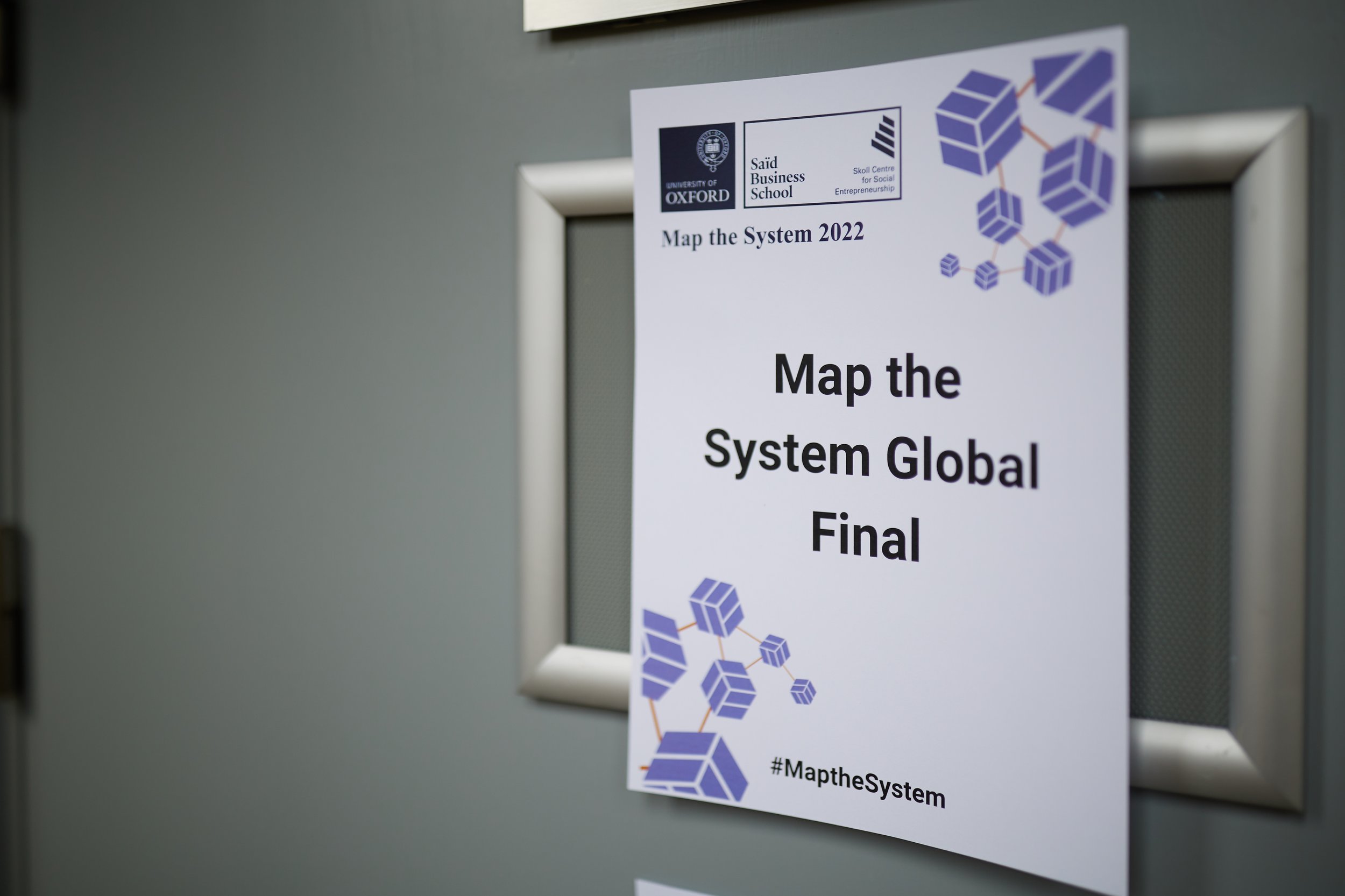
Are you ready to meet future changemakers 2025?
11 Final Teams
Since January 2025, these teams have been diving into complex challenges — and after winning at the campus level, they're ready to help build a better future.
Institute: Corpus Christi College
Team members: Khushi Khanna, Holle Erichsen, and Kayla Safavi
-
As residents of Vancouver, we’ve witnessed the silent heartbreak unfolding in our own backyards, people dying alone in alleyways, in temporary shelters, behind locked doors. This project began with a question that felt both urgent and deeply personal: Why, in a city full of resources, are so many still slipping through the cracks? Using a systems-thinking approach, we mapped the toxic drug crisis not just through data, but through stories, policies, and the broken connections between them. What we found was a fragmented system, disconnected services, underfunded prevention, and care that often arrives too late. We looked beyond borders to see what’s working elsewhere, and we surfaced what could work clarity, creativity, and impact! here: culturally rooted care, peer-led recovery, housing with dignity, and long-term support that doesn’t stop at survival. This project is a call to action, but more than that, it’s a call to care. Real care. The kind that meets people where they are, before silence and poison take their lives.
Institute: University of Waterloo
Team members: Gabriel Jabile
-
I examined the inefficiencies in Uganda's veterinary system, particularly its inability to effectively manage animal health and prevent disease outbreaks. My research focused on the historical development of veterinary policies, including the impact of colonial and post-colonial reforms, and the role of government bureaucracy. I analyzed various reports, studies, and government documents to understand the fragmentation of services and the lack of coordination between agencies.
Institute: Humber Polytechnic
Team members: Yangshu (Kelly) Jiang, Maharshi Trivedi, and Jacob Lamb
-
In the Mekong region, more than 300,000 individuals have been transported into fraud complexes run by criminal-military ecosystems. We examined how digital fraud, poor governance, and ethnic militia zones interact to form this trafficking ecosystem using systems thinking through an Iceberg Model and feedback loop mapping. We did research to demonstrate how criminal networks penetrate national boundaries into uncontrolled infrastructures. One important conclusion is that these scams bring billions of dollars in illegal money yearly. Another is how rescue and rehabilitation are made more difficult by blurring boundaries between victims and scammers. Rather than only arrests, we argue that structural change is necessary for long-term remedies through victim-centred reintegration and regional law harmonization. Our research reinterprets cyber slavery as a multinational, tech-driven business that takes advantage of global injustices rather than a singular crime.
Institute: Memorial University of Newfoundland
Team members: Emmanuel Agbanah-Owa and Emilly Rocha
-
Our research explored mental health challenges faced by newcomers to Canada, including immigrants, refugees, and international students. Using a systems-thinking approach, we examined how mental wellbeing is influenced by the interaction of mutiple factors including individual experiences, structural barriers, cultural dynamics, and policy environments across the pre-, peri-, and post-migration phases. We drew from academic literature, government and community reports, and our lived experiences as newcomers to map this issue. We used tools like the Iceberg Model, Causal Loop Diagrams, Stakeholder Mapping, and a Multi-Layered Systems Model to visualize dynamic relationships and feedback loops within the system. A key finding was that mental health symptoms such as anxiety or isolation often result from the interaction of multiple systemic factors. We also learned that while many effective supports exist, they remain fragmented—reinforcing the need for coordinated, culturally grounded, and sustainable interventions across sectors.
Institute: Mount Royal University
Team members: Grace Moore and Damon Vennard
-
Care is everyday, essential work. Yet the dominant mental models related to care work fail to reflect this essential nature, leading to the systemic under-appreciation and undervaluation of both paid and unpaid care work. Care work, defined as the everyday labor to maintain people and populations, exists at the intersection of emotional, physical, and societal dimensions, with its meaning shifting based on context and perspectives. Our central argument is that dominant mental models fail to recognize the essential nature of care work, leading to the systemic undervaluation of both paid and unpaid care work. This undervaluation results in caregivers facing challenges such as burnout and economic vulnerability. The project utilizes a feminist and intersectional perspective to investigate systemic inequities, intersecting identities, and opportunities for meaningful change. It explores the roots of societal norms and gender roles that contribute to the undervaluation of care work, and identifies potential leverage points for shifting perceptions, policies, and practices. Key research themes include gender inequalities, emotional and cognitive labor, and economic vulnerability for caregivers. Insights from expert interviews highlight the structural issues within healthcare systems that impact the quality of patient care and the well-being of care workers. The research also considers the experiences of marginalized groups, such as immigrant women, who face compounded challenges in care work. Ultimately, this project aims to promote a more equitable future by addressing the systemic undervaluation of care work and fostering support for caregivers.
Institute: Royal Roads University
Team members: Daniil Lyubomudrov, Om Mistry, and Sanskriti Shetty
-
We analyze the crucial role that fast food plays in North America, influencing public health, social patterns, and the economy, as illustrated in our system map. Its convenience and low cost have made it a common choice in today's diets, but the high calorie, processed ingredients are linked to obesity and other serious health challenges. Socially, fast food reflects how eating habits and cultural norms are shaped. Although the fast-food industry boosts market competition, provides jobs, and brings in billions of dollars in income, it also poses serious issues about environmental effects and working conditions. Understanding the far-reaching effects of fast food is crucial in tackling its advantages and challenges in modern society.
Institute: University of Alberta
Team members: Ayla McCallum, Claire Theaker-Brown, Moyosooreoluwa Okunlola, Zirui Wang and Kritika Rawat
-
Our study examines the overabundance of plastic waste in global waste streams, with a specific focus on discarded, un-recyclable household items in our municipality of Edmonton, Alberta. In pursuit of a deeper understanding of the systems that support plastics creation, consumption, and disposal, we have explored underlying mechanisms such as connections between policymakers, industry leaders, and environmental advocacy groups; technological influence on waste processing systems; social attitudes towards reuse and waste mitigation; and capitalist influences on consumer culture. In particular, we have observed untapped potential to coordinate, systematize, and amplify existing community-level actions that prevent plastic goods from entering waste streams in the first place. It is our aim to demonstrate how political and economic leadership can add scalable cohesion to the efforts of individual citizens and community groups.
Institute: Thompson Rivers University
Team members: Jenna Sims
-
In 2024 and 2025, I interviewed doctors, health administrator, advocates and patients. I turned 6 of these conversations into a YouTube podcast called Your Health Care Matters to help raise awareness about the primary care crisis in BC. These interviews highlighted key problems with access to family physicians in BC, which I used as a starting point for deeper research. I explored a variety of sources, including government websites, academic journals, and news articles, to better understand the systemic challenges, past efforts, and potential solutions. My research question was: “How might we improve timely patient access and attachment to family physicians in British Columbia?”. My key takeaways include discovering the importance of team-based care and recognizing how short-term band-aid fixes do not change the status quo or address the root causes of this crisis. Addressing systemic issues is a marathon, not a sprint, requiring long-term thinking and collaboration.
Institute: University of British Columbia Okanagan
Team members: Anika Tasneem
-
Load shedding in Bangladesh happens when electricity demand is higher than supply, causing frequent power cuts. Rapid urbanization, growing industries, and a rising population have increased energy needs, but the country struggles to produce enough electricity due to outdated infrastructure, fuel shortages, and reliance on imported energy. These power cuts disrupt daily life, affecting businesses, schools, hospitals, and farms. Small businesses lose money, students struggle to study, and hospitals face risks during critical treatments. Farmers also suffer as irrigation systems fail without electricity. Bangladesh depends on imported fuel, making it vulnerable to global price changes and supply issues. The government is working on solutions like increasing power production, investing in renewable energy, and modernizing the electricity grid. However, for a long-term fix, the country needs to reduce its dependence on fossil fuels, improve energy efficiency, and create a more reliable and sustainable power system for everyone.
Institute: University of Calgary
Team members: Amy Chen, Sunand Kannappan, Taro Lakra, Howard Leong, and Kapilan Panchendrabose
-
Our research examined the worsening crisis of hip and knee surgical wait times in Alberta, where over 15,000 people are currently waiting for life-altering procedures. We used a systems thinking approach combining stakeholder interviews, economic modelling, AI-driven sentiment analysis, and extensive literature review. By engaging with the Alberta Hip & Knee Clinic, we identified five root causes: rising osteoarthritis burden, poor medical management, constrained resources, surgical inefficiencies, and a broken triage system. Notably, we found that Alberta incurs over $345 million annually in economic and social costs due to delays. We developed twelve actionable levers, such as EMR-integrated triage tools and publicly funded OA management programs, and mapped them by impact and feasibility. Our findings highlight that surgical delays are not just logistical but structural, requiring coordinated system-wide reforms. We hope this work offers a roadmap for policy leaders aiming to restore timely care and rebuild trust in public health systems.
Institute: University of New Brunswick
Team members: Emily Leah Paul, Tanishka Tyagi, Zaki Farok Khimani
-
Our research employs a systems-thinking approach to understand and rethink educational pathways to employment for New Brunswick youth. Specifically, we focus on the transition period between education and either post-secondary or employment, focusing on youth at risk of NEET status. This work best serves to educate and inform the public in and outside the academy of the unique challenges faced by our province’s youth. Choosing and defining one’s pathways is arguably the most vital life decision one must make, and NEET status can be experienced by anyone. Although the conversation of NEET may not be at the forefront of policy decisions, there is an urgency to this issue as it is our generation that will be next at the decision-making table. We want to ensure policymakers, administrators, educators, and employers are aware of the vital role they must play in ensuring the success of our future leaders.
Meet the Judges
Joining us are some of our incredible alumni and practitioners with diverse experiences in systems change work.
-
Tim Fox is a proud member of the Siksikaitsitapi, Blackfoot Confederacy, from the Kainai Nation, and current Vice President of Indigenous Relations and Equity with Calgary Foundation. Tim’s primary focus is facilitating a systems change approach for reconciliation, decolonization and racial equity. Tim helps to strengthen and enhance the internal culture and practice at Calgary Foundation while incorporating work of the Truth and Reconciliation Commission and Racial Equity both internally and in the broader community. Tim published his first children’s book, Napi kii Imitaa (Napi and the dogs), in 2021 in both English and Blackfoot as part of a language revitalization project. He co-chairs The Circle on Philanthropy, and was recognized as a top 40 under 40 in 2019 for his efforts of mobilizing systems change for reconciliation and racial equity.
-
Tamara Connell (she/they) is the CEO of the Academy for Sustainable Innovation, a national charity focused on Transition Leadership capacity-building. Tamara is a strong, creative, and entrepreneurial leader with extensive experience across the sustainability and social innovation spheres. She has 20+ years of adult education experience and has designed and delivered courses, programs, and other custom engagements all around the world. Tamara’s previous roles include Program Director in the Master’s of Strategic Leadership towards Sustainability program at BTH in Sweden, Director of Sustainability Learning Programs at The Natural Step Canada, and Associate Director of Education & Training at RADIUS SFU. She has also run her own successful consulting company for the past 10+ years, focused on facilitation, stakeholder engagement, and strategic planning. Tamara holds a BSc in Environmental Planning, and a Masters in Strategic Leadership towards Sustainability.
-
Prakriti Dhakal is a global health policy advocate from Nepal with over a decade of experience in nonprofit leadership and community-based interventions. A Chevening Scholar currently pursuing her MSc in Global Health Policy at the London School of Economics, she is the Co-Founder and Executive Director of United for Impact, a women- and youth-led nonprofit advancing gender equity, SRHR, and health literacy across Nepal. With a background in medical imaging technology and an MBA in Nonprofit Management, Prakriti integrates grassroots insights with policy innovation. She founded the CEE SRHR Innovation Hub under the U.S. Department of State’s Community Engagement Exchange (CEE) Program, leading cross-country programs that have impacted 5,000+ adolescents across Nepal, Pakistan, Bangladesh, and Sri Lanka. Her leadership is grounded in systems thinking—applying tools like iceberg models and causal loop diagrams to shift harmful narratives, uncover root causes, and co-create long-term solutions. Her research on inequitable access to infertility care in Nepal was recognized at the Map the System Global Finals at Oxford University, where her team received the “Representation of Underrepresented Community Voice” award. She has held leadership roles in Rotary International District 3292 Nepal and Bhutan, contributed to legislative engagement as a Program Officer at Pokhara Research Centre, and continues to champion intersectional, inclusive policies that build community resilience in the face of climate change and health inequities.
-
Vanessa’s passion for building a socially inclusive, sustainable, and affordable world has led her to work in various roles ranging from affordable housing to the green economy. Prior to her current role, she worked for the City of Vancouver’s economic development agency to support the City’s transition to a decarbonized and just economy. She is also a founding member of the BIPOC Sustainability Collective, and is a volunteer journalist for The Starfish Canada. Since her time as a Map the System’s participant in 2019, she has applied her systems thinking knowledge and skills in her various roles. She even co-created the systems thinking classes for BCIT’s Climate Changemakers Leadership Training Microcredential. She hopes that more people can apply systems thinking in everything they do.
Stories

“You are going to change the world, because that is actually what the world is. You do not pass through this life, it passes through you. You experience it, you interpret it, you act, and then it is different. That happens constantly. You are changing the world. ”




































